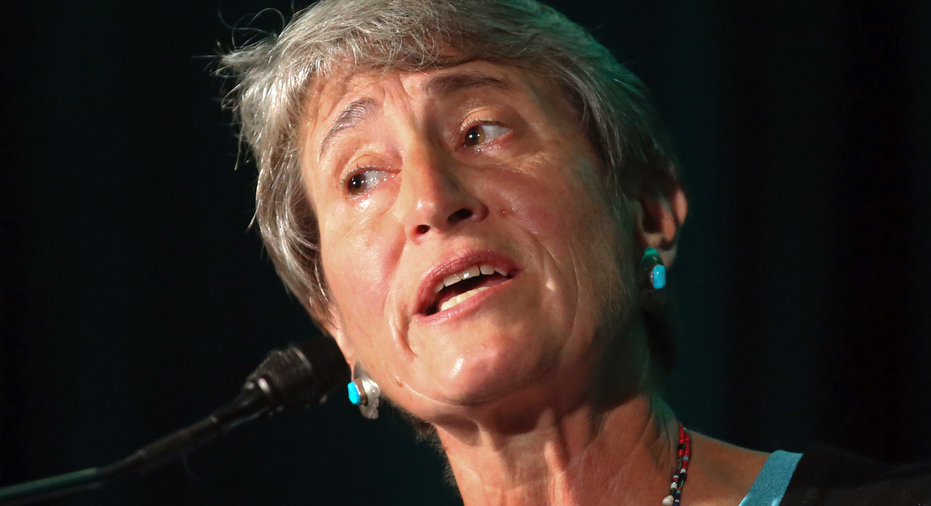Outdoor industry flexes political muscle in US land fight

SALT LAKE CITY – Outdoor recreation industry leaders aren't going quietly as they stage their last trade show in Utah before moving it to Colorado.
As they said goodbye and thank you Wednesday to Salt Lake City for hosting the expo for two decades, some industry leaders also criticized Utah's Republican leaders for their hard-line opposition to a new national monument and for their efforts to seize control of federal lands.
Those issues led the industry to move the twice-yearly expo that generated an estimated $45 million in annual direct spending in the state by visitors to the expo.
"It's about doing what is right," said Marisa Nicholson, Outdoor Retailer show director. "It's about open spaces and getting outside; action over words."
Several heavy-hitters in the industry spoke at the start of the show, saying the decision to relocate to Denver is part of their effort to flex the industry's collective power and support preservation of public lands.
Amid threats by several major companies to boycott the expo if it stayed in Utah, show organizers announced earlier this year that they would leave Utah over Republican opposition to the designation of Bears Ears National Monument and the ongoing push to take more control of federal public lands.
Some visitors to the final expo in Utah bought hats and T-shirts bearing the phrase, "This land is your land." Hundreds were expected to participate in a march Thursday to the Utah state capitol that is being organized by industry officials to show support for preserving public lands.
Former Interior Secretary Sally Jewell, who was CEO of REI before serving under President Barack Obama, said the decision to leave for Denver sends a powerful message to Utah leaders who believe they know best how to manage land in the state.
Jewell also blasted President Donald Trump's review of the designation of two dozen national monuments, saying it's out of step with what Americans want.
"President Trump is playing games with our public lands, treating the monuments like they are contestants on a game show," Jewell said in her first major public speech since leaving the Interior post. "But the consequences, as you know, are real and devastating."
Utah leaders dispute the contention that they don't want to protect public land and say local leaders are best positioned to manage the areas.
Show organizers thanked Salt Lake City for helping the expo grow from about 5,000 people at the first show in 1996 to about 29,000 last summer, and for giving the burgeoning industry a place to share ideas and make their political voice heard.
But they stood firm behind the decision to leave for Colorado.
Industry members clamored for a move to a state "that better supports our collective values," said Amy Roberts, executive director of the Outdoor Industry Association, which estimates that the outdoor recreation industry generates $887 billion in annual consumer spending in the U.S.
Trump ordered the review of the national monuments based on the belief that a law created by President Theodore Roosevelt allowing allows presidents to designate monuments has been improperly used to protect wide expanses of lands instead of places with particular historical or archaeological value. Monument designations protect federal land from energy development and other activities.
A final report from Interior Secretary Ryan Zinke is due next month, but he has already recommended that Bears Ears National Monument on tribal lands in southern Utah be downsized. Zinke has also said three monuments in Colorado, Idaho and Washington will be left alone.
Alex Honnold, a professional rock climber and the first person to climb alone without ropes or safety gear to the top of the massive granite wall known as El Capitan in Yosemite National Park, said his love of the outdoors is rooted in past decisions by politicians to protect national parks and monuments.
"Someday if I have kids of my own, I hope to take them to a place like Yosemite so they can be inspired in the same way I was," Honnold said.



















